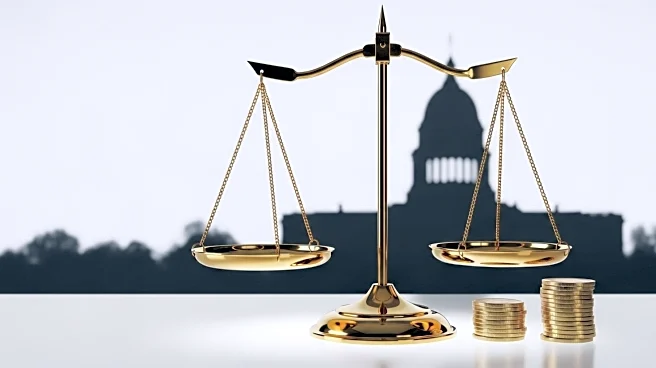What's Happening?
The Trump administration has proposed changes to the H-1B visa program, seeking to eliminate the lottery system in favor of a weighted selection process. The new proposal by the Department of Homeland Security aims to allocate visas to higher-skilled and higher-paid workers, while maintaining opportunities for all wage levels. The changes follow a recent proclamation by President Trump imposing a $100,000 fee for new H-1B applications. The proposal could reshape how global talent flows into the U.S. economy, favoring established companies that can pay top market rates over emerging firms relying on younger international talent.
Why It's Important?
The proposed changes to the H-1B visa program could significantly impact the U.S. tech industry and global talent mobility. By prioritizing higher wages, the rule may benefit established companies that can afford to pay top market rates, potentially disadvantaging startups and smaller firms. This shift could lead to a more senior, higher-paid tech workforce, affecting the industry's dynamics and competitiveness. The changes may also influence international firms based in the U.S., as they will need to budget for increased fees and adapt their hiring strategies to meet the new criteria.
What's Next?
The proposal is subject to public comment and potential legal challenges, as stakeholders may contest the changes. Tech companies and industry leaders are likely to advocate for adjustments to the rule, emphasizing the need for a diverse and inclusive workforce. Employers will need to monitor developments and adjust their hiring and training strategies to align with the new criteria. The proposal's impact on international talent mobility may also prompt discussions on alternative visa arrangements or partnerships with other countries.










